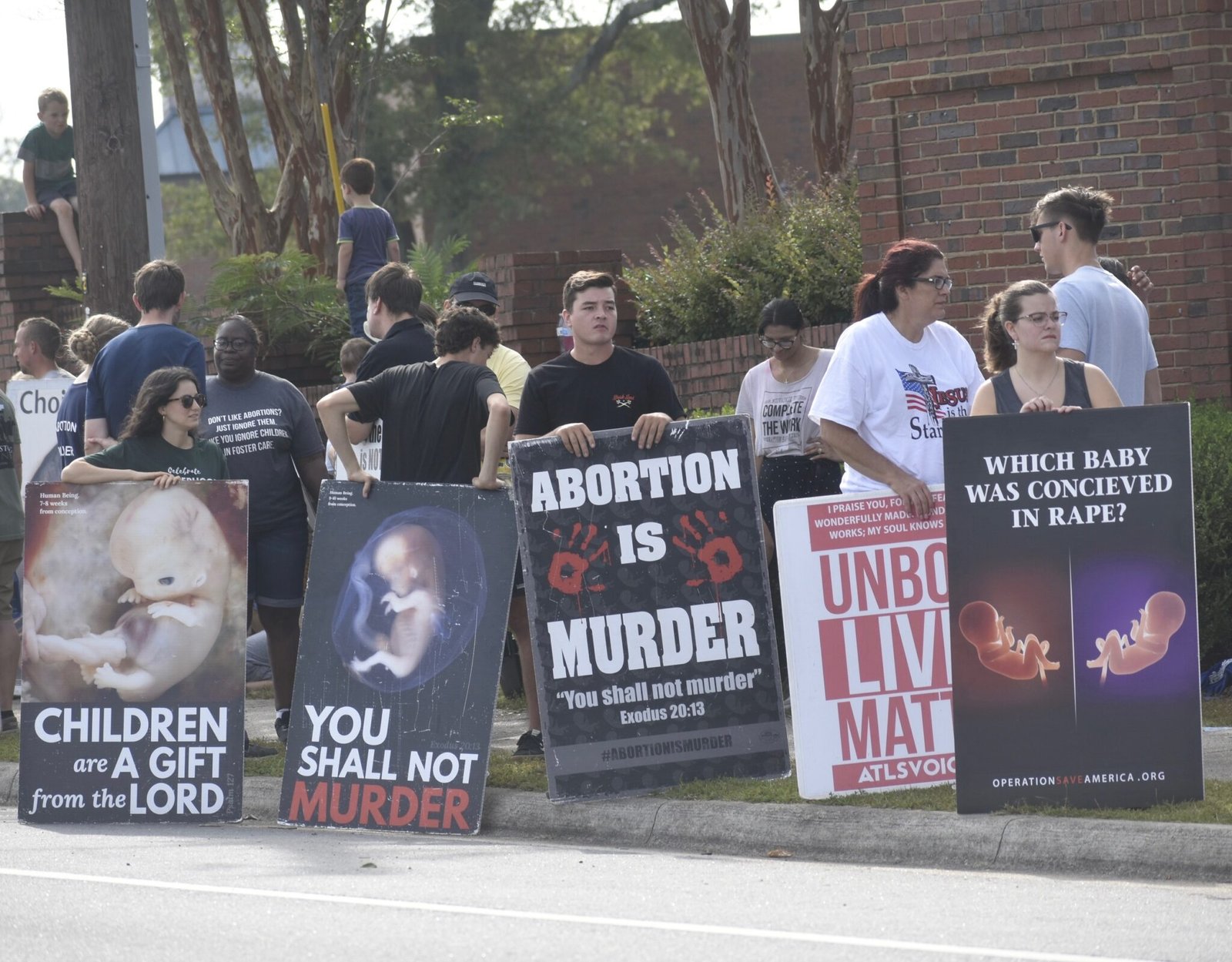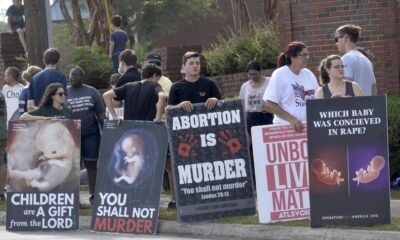abortion
Women Facing Unprecedented Prosecution for Miscarriages Following Roe Reversal

This report examines abortion access three years after the U.S. Supreme Court’s decision that eliminated the federal right to abortion.
Brittany Watts faced a devastating situation in Warren, Ohio, when medical staff informed her that her nearly 21-week-old fetus had no chance of survival. Furthermore, she was told that without treatment, her own health was at risk.
In a rare agreement, both Watts’ attorneys and the hospital she is now suing acknowledge this dire reality. However, two years ago, after leaving the hospital due to delays in care, Watts returned to find herself facing criminal charges despite having suffered a miscarriage.
During her treatment, a nurse allegedly speculated to police that Watts had given birth to a live baby that she then killed. This assertion forms the basis of a federal lawsuit alleging negligence and civil rights violations against both the hospital and its staff.
Rachel Brady, an attorney representing Watts, described the long-term trauma her client has undergone. Watts, who has unwillingly become a symbol of pregnancy criminalization since the reversal of Roe v. Wade, seeks legal recourse to prevent similar injustices from happening to others.
“This is every expectant mother’s worst nightmare,” Brady stated. “Instead of grieving, she faced interrogation and was taken away in handcuffs.”
In the years following the Supreme Court’s Dobbs decision, women across the nation have encountered legal repercussions after miscarriages or stillbirths. While many are not charged directly under abortion laws, existing statutes like homicide and abuse of a corpse have become the legal basis for prosecuting these women.
Dana Sussman, senior vice president at the legal nonprofit Pregnancy Justice, noted an alarming trend: law enforcement increasingly views pregnancy loss as a suspicious event rather than a medical crisis. The organization reported a surge in prosecutions—210 related to pregnancy losses in the first year after the Dobbs ruling.
Despite these statistics indicating a rising concern, experts caution that the numbers still represent a small fraction of all pregnancies. However, they emphasize that even one wrongful case is unacceptable.
States with restrictive abortion regulations, such as Alabama, are witnessing the harshest consequences. Over 50% of all pregnancy-related prosecutions in the U.S. this year originated there, driven primarily by stringent laws that have criminalized behavior during pregnancy.
Sussman described how many prosecutions are emotionally charged rather than grounded in scientific evidence. Convictions often hinge on unreliable medical tests, such as the hydrostatic lung test used to determine if a stillborn fetus was born alive, a method widely discredited by medical professionals.
As scrutiny of pregnancy-related cases escalates, defenders like Rafa Kidvai from the If/When/How’s Repro Legal Defense Fund are witnessing increased demand for legal and financial support. Since 2022, they have observed a rise in cases involving severe charges linked to pregnancy outcomes.
Watts’ experience was compounded by delays in receiving appropriate medical care at a Catholic hospital. Her legal team is seeking clarity about these delays as similar situations are increasingly reported across the nation in the context of abortion restrictions.
In the absence of criminal charges related to abortion laws, Watts was prosecuted under a statute generally reserved for more serious crimes. This decision raised questions about the appropriateness of such charges against someone who simply experienced a miscarriage.
Additionally, numerous states are considering laws that would grant embryos personhood, which could lead to further criminalization of pregnancy outcomes. The anti-abortion movement continues to gain traction, with multiple states introducing legislation aimed at curtailing abortion rights more aggressively.
In contrast, Washington state has enacted the Dignity in Pregnancy Loss Act, aiming to safeguard the rights of women and prevent the criminalization of pregnancy outcomes unless potential criminal activity is evident.
Last updated 2:05 p.m., Jun. 24, 2025


















